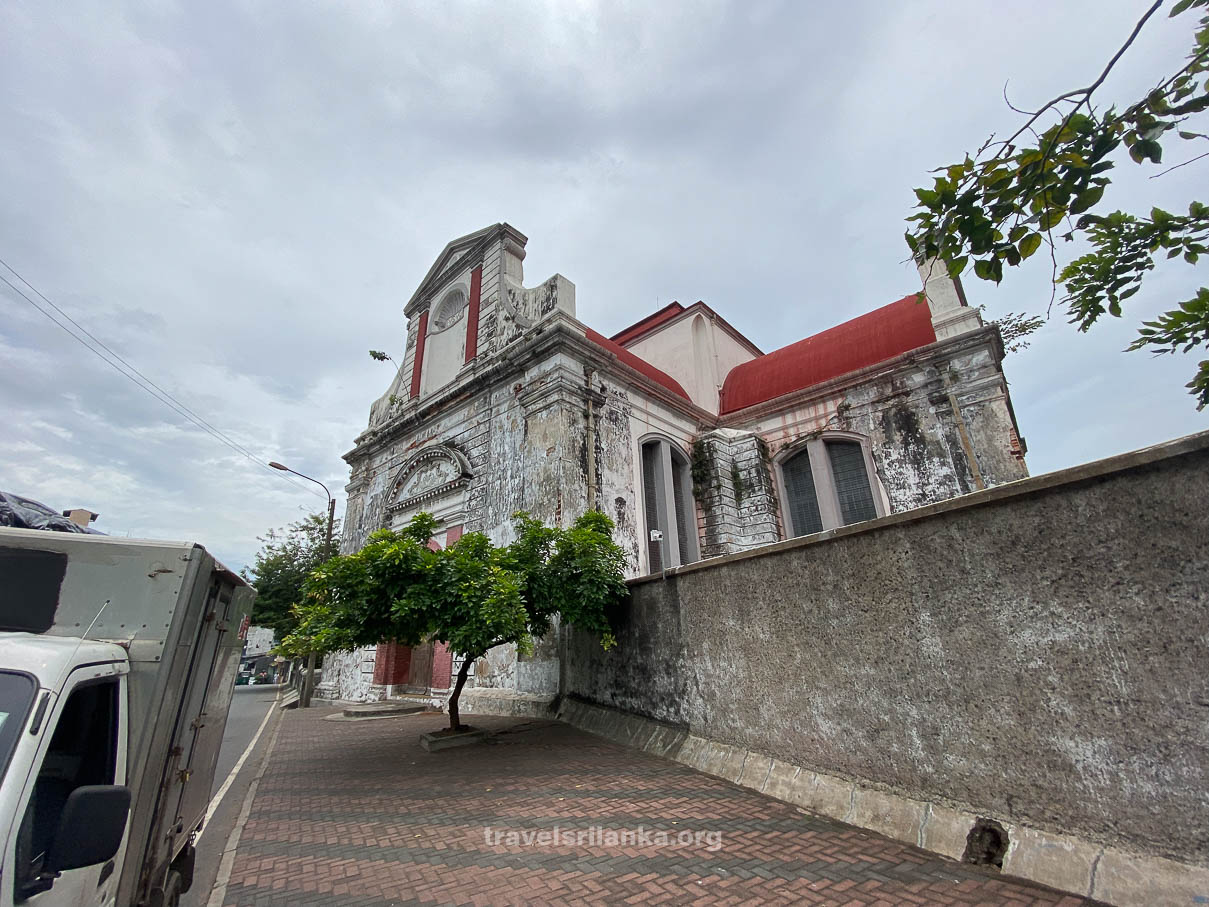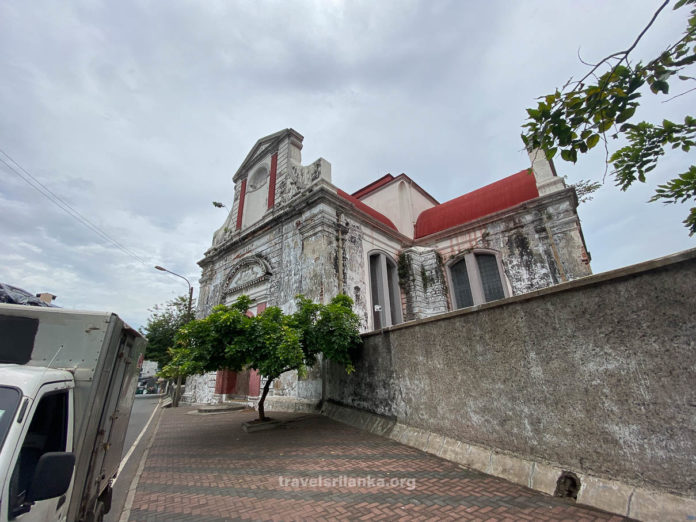Colombo, the commercial hub of Sri Lanka, has a rich history dating back hundreds of years. One of the prominent landmarks that can be seen from the port of Colombo is the Aduruppu Street Church, also known as the Wolfendol Church. Located near the Kolaba Fort, the church was built during Dutch rule in 1749.

The Dutch called the area where the church is located “Voluen daal” which means “the valley of the wolves.” This was due to the howling of foxes that lived in the surrounding forested area, now known as the Aduruppu Street area. However, there is also a theory that the church was built on the site of a large temple called the Great Temple of Colombo.

The Wolfendol Church is built on a high hill, and its black stone foundation and five-foot thick walls give it a sturdy and grand appearance. The church is designed in the shape of a cross when viewed from above. Limestone is widely used for the arches, while bricks and granite are also used in construction. Brass plates that once covered the arches are no longer visible.

The church is also home to numerous tombstones, some of which are very old and belong to elite members of society. It is believed that some special tombstones were brought from the site of St. Peter’s Church in Fort Colombo and buried at the Wolfendol Church.

Today, the Wolfendol Church is a popular tourist attraction in Colombo, and visitors can admire its historic architecture and learn about its fascinating history.





[…] Source link […]